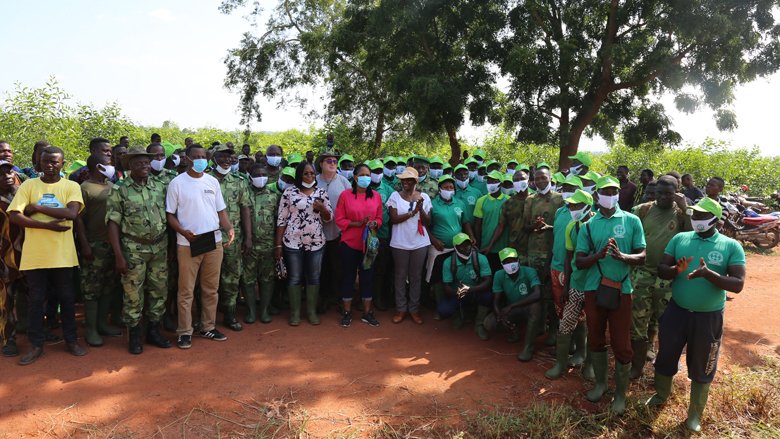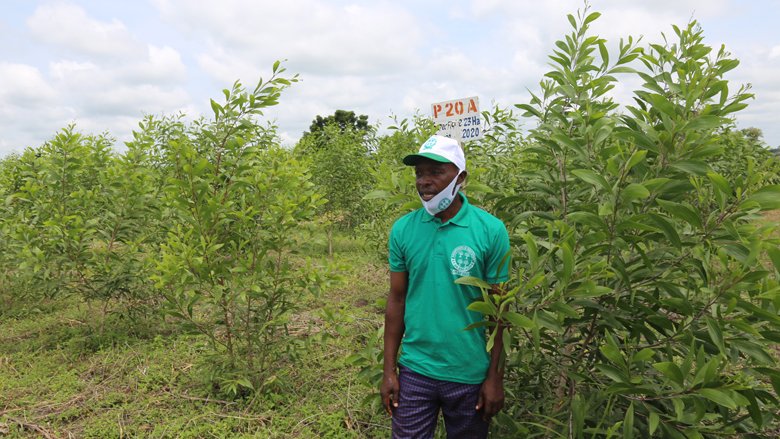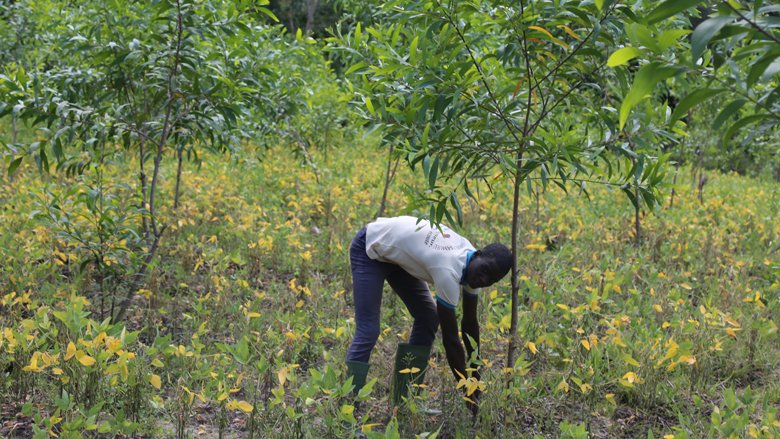Plantations of Acacia auriculiformis line both sides of the tracks that serve the 1,530 hectares of classified forest in Dan. This new forest growth is the result of intensive reforestation work done over the past three years by communities grouped together into forest management units. The forest has been organized into three series (production series, agricultural series, and protection series) and two management units (Azoua and Finli) in which 12 groups operate, with a total of 217 people, 50% of whom are women, and 1,292 casual workers, 27% of whom are women.
“We were trained in the various stages of reforestation, from the production of seedlings in the nursery to caretaking, including techniques for planting, staking, and the building and maintenance of firebreaks. We have transformed from being predators of the forest to become experts and artisans of reforestation,” says the president of the Dan Coordinating Council of Forest Management Units, whose actions have made it possible to reconstitute more than 876 hectares of forest and to generate more than $1,074 million in income for the communities.
Women as actors and promoters of reforestation
The World Bank-financed Benin Classified Forests Project (PFC-B) has enabled the mobilization and involvement of communities in reforestation activities. It aims to improve the integrated management of classified forests and develop value chains for non-timber forest products for the benefit of forest-dependent communities, using a participatory approach that allows communities to be true stakeholders in reforestation.
The project is particularly suitable for women in the groups. “Thanks to the additional income, I can process cassava and sell gari. I also raise chickens and pigs. This allows me to easily take care of my family and cover the health needs of my children,” says Francisca. Since joining the Dan classified forest project, she has been encouraging everyone she meets to get involved as well.
“My life has changed for the better,” adds Clementine, another beneficiary. “Before the project, I was just surviving. Since the reforestation activities started, I have been actively participating and getting paid on time. This allows me to regularly buy what I need to take care of myself and my children.”
Rural exodus halted and new careers
Young people are also benefiting from the reforestation project. “I dropped out of Grade 9. I didn't have any paid work before this project came along and I was thinking of leaving the village to move to Bohicon (the main city in central Benin) to find a job,” says Komlan, a twenty something year old who is sporting a cap. This project is a blessing for him because, although tiring, the job is well paid and does not require any major qualifications.
Through word of mouth, many young people like Komlan have started working to restore the Dan forest. Rémi Houéhounha, president of the FIFONSI group and an enthusiastic forester, is proud of the project. He has been working in the sector for many years and has never seen such enthusiasm. “I hope that these young people, who are interested in their immediate environment, will stay in the village and invest in this vital area. I know parents who now want their children to study agronomy,” he says.
Local communities as the key to the future of the forest





